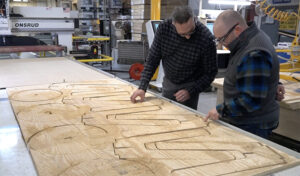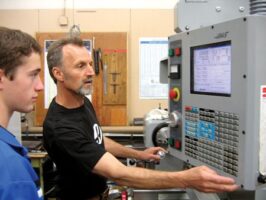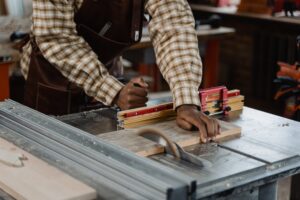
Employment of industrial machinery mechanics, machinery maintenance workers, woodworkers and millwrights is projected to grow 7 percent from 2018 to 2028, about as fast as the average for all occupations. The need to keep increasingly sophisticated machinery functioning and efficient will continue to create demand for these workers.



The Wood Industry Association (WIA) was established on January 1, 2024 following the merger of the Wood Machinery Manufacturers of America (WMMA) and the Woodworking Machinery Industry Association (WMIA). WMMA was founded in 1899 and, for more than 120 years, worked to increase the productivity and profitability of U.S. woodworking machinery and woodworking tools manufacturers and the businesses that support them. Since 1978, WMIA has represented importers and distributors of woodworking machinery and ancillary equipment in North America. WMMA and WMIA were co-owners of the International Woodworking Fair®, North America’s largest woodworking technology and design trade show and conference and a top destination for the global woodworking sector. The two associations merged to form the Wood Industry Association to provide one unified voice for the wood machinery industry in North America, more resources to invest in member programs, safety standards and public policy, expanded committee and volunteer opportunities, and greater efficiency through streamlined operations and fewer redundancies.

Industrial machinery mechanics, machinery maintenance workers, and millwrights typically need a high school diploma. Industrial machinery mechanics and machinery maintenance workers also usually need at least a year of on-the-job training. Most millwrights go through an apprenticeship program that may last up to 4 years. Educational requirements vary for sales representatives and depend on the type of products sold. If the products are not scientific or technical, a high school diploma is generally sufficient for entry into the occupation. If the products are scientific or technical, sales representatives typically need at least a bachelor’s degree. Most sales managers have a bachelor’s degree and work experience as a sales representative.